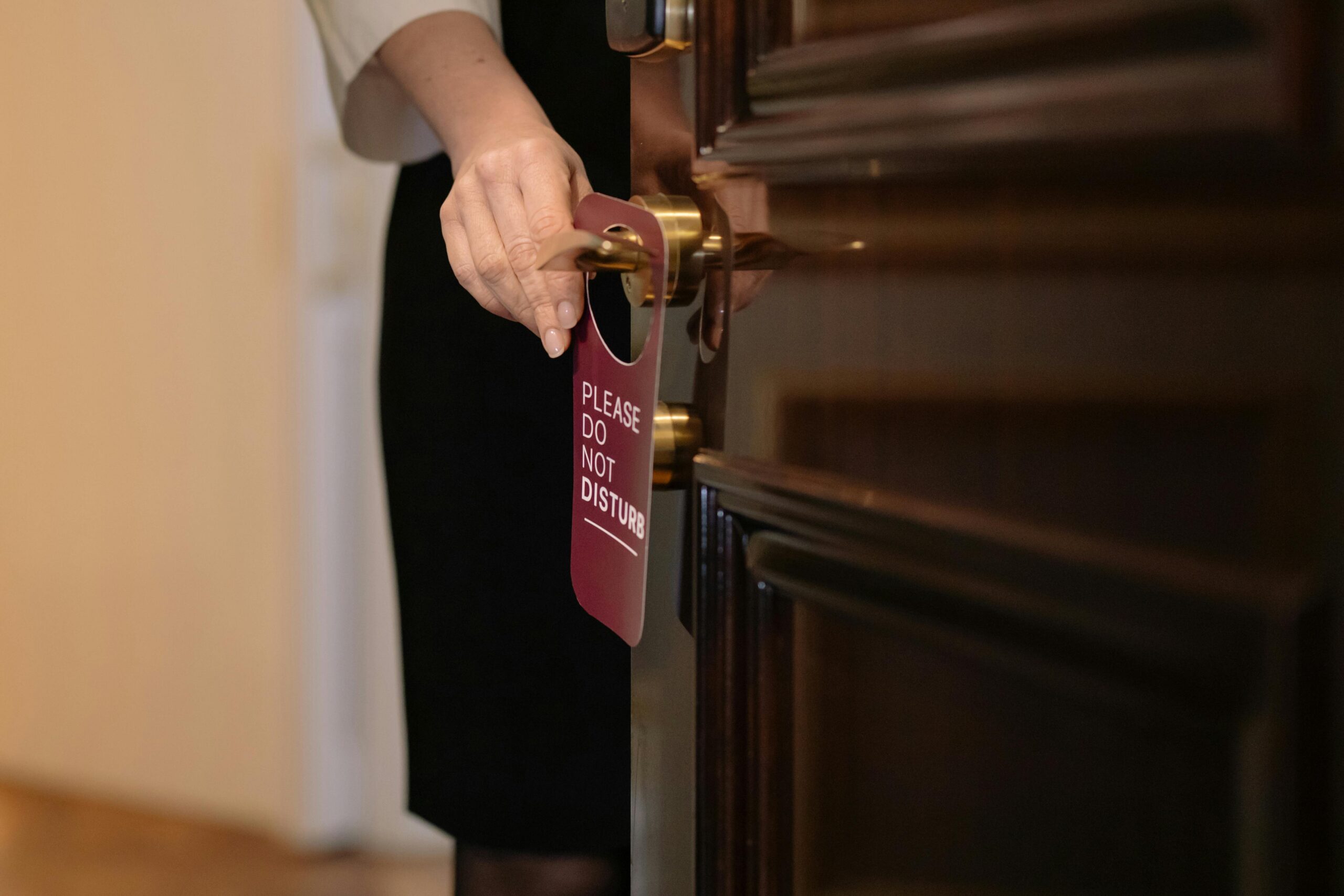When it comes to running a successful hotel, impressing guests every time is the ultimate goal—and one of the most important factors is impeccable housekeeping. This article dives deep into expert secrets for hotel housekeeping that can transform ordinary room cleaning into an unforgettable guest experience. Wondering how top hotels maintain that flawless shine and keep guests coming back? You’re about to discover tips for hotel housekeeping that go beyond the basics and bring professional-level polish to every corner of your property.
Housekeeping isn’t just about tidying up rooms; it’s an art that blends efficiency, attention to detail, and guest satisfaction. Are you ready to unlock proven hotel housekeeping strategies that boost positive reviews and elevate your hotel’s reputation? From innovative cleaning hacks to time-saving workflows, these industry insider tips will help your team deliver sparkling rooms with consistency. Even if you think you’ve tried everything, these top hotel housekeeping techniques might surprise you—and yes, even small changes can create a huge impact on guest impressions!
In today’s competitive hospitality landscape, mastering hotel cleaning best practices means staying ahead with the latest trends and tools. Whether you manage a boutique inn or a large resort, learning how to optimize housekeeping processes while ensuring hygienic perfection is key. Curious about how to impress guests with every room service? Keep reading to explore expert advice on everything from efficient room turnover to maintaining high cleanliness standards that guests notice and appreciate. Get ready to elevate your hotel’s housekeeping game like a pro!
7 Proven Tips for Hotel Housekeeping to Enhance Guest Satisfaction and Boost Reviews
In the bustling hotel industry of New York, housekeeping plays a huge role in shaping guest experiences and the overall reputation of a property. Many guests judge a hotel by the cleanliness and comfort of their room, and poor housekeeping can lead to bad reviews faster than anything else. But what are the proven ways to make housekeeping not only effective but also impressive to guests? Below, we share 7 proven tips for hotel housekeeping to enhance guest satisfaction and boost reviews, along with some expert secrets to impress guests every time they step inside their rooms.
1. Prioritize Attention to Detail — Small Things Matter Big
It’s often the little things what guests notice the most. A speck of dust on the nightstand, a missed spot on the bathroom mirror, or a crooked picture frame can leave a bad impression. Housekeeping teams should be trained to pay attention to every tiny detail in the room. This includes checking under furniture, inside drawers, and even the corners of the ceiling where cobwebs might collect.
For example, a 5-star hotel in Manhattan noticed that guests appreciated when the remote controls and light switches were wiped down thoroughly every time. It’s a small extra effort but makes a big difference in perceived cleanliness.
2. Use High-Quality Cleaning Products and Tools
Not all cleaning products are created equal. Using the wrong chemicals or old equipment can leave residues or even damage surfaces, which guests will notice. Hotels should invest in professional-grade cleaning supplies that are safe but effective. Microfiber cloths, HEPA-filter vacuums, and eco-friendly disinfectants are some examples that improve cleanliness without harsh smells or wear.
Benefits of using high-quality products:
- Longer-lasting cleanliness
- Safer for guests and staff
- Environmentally friendly options attract eco-conscious travelers
- Prevents damage to furniture and fixtures
Many New York hotels have switched to green cleaning products in recent years, boosting their appeal to guests who care about sustainability.
3. Establish a Consistent Cleaning Checklist
Housekeeping staff often juggle multiple rooms per shift, which can lead to inconsistent cleaning standards. A standardized checklist ensures that every room gets the same thorough treatment. This checklist should include:
- Changing all linens and towels
- Sanitizing bathroom surfaces and fixtures
- Vacuuming and mopping floors
- Dusting all surfaces and corners
- Restocking amenities (soap, shampoo, coffee, etc.)
- Checking all appliances and lights are working
Checklists also help supervisors monitor quality and provide feedback. It reduces errors and guarantees guests receive the same high standard across the hotel.
4. Train Staff on Guest Interaction and Soft Skills
Housekeeping is not just about cleaning, it’s also about creating positive guest interactions. Friendly greetings, respecting guest privacy, and responding politely to special requests can turn a routine room cleaning into a memorable experience. Staff should be trained on communication skills and how to handle situations professionally.
For instance, if a guest leaves a note requesting extra pillows, the housekeeping team should respond quickly and with a smile when delivering them. This personal touch often leads to better reviews and repeat visits.
5. Implement Technology to Streamline Housekeeping Operations
Modern hotels are embracing technology to improve housekeeping efficiency. Mobile apps allow staff to receive room assignments in real-time, report maintenance issues instantly, and update room status directly from the floor. This reduces delays and confusion, ensuring rooms are ready for guests on time.
New York’s large hotels use software that tracks cleaning times and staff performance, helping managers optimize shifts and workloads. It also provides data to improve processes continuously.
6. Pay Attention to Odors and Air Quality
Nothing can ruin a guest’s first impression quicker than unpleasant odors. Housekeeping should ensure rooms smell fresh and inviting. This can be achieved by regular cleaning of carpets and upholstery, using air purifiers, and avoiding overpowering air fresheners that some guests find annoying.
Tips include:
- Ventilating rooms thoroughly between checkouts
- Using natural scents like lavender or citrus
- Regularly cleaning HVAC filters and ducts
Good air quality not only improves comfort but also prevents complaints related to allergies or respiratory issues.
7. Respond Quickly to Guest Feedback and Complaints
Even the best housekeeping teams can miss something occasionally. What sets great hotels apart is how they respond to guest feedback. Encouraging guests to report any issues and responding promptly shows commitment to guest satisfaction.
Hotels that follow up on complaints often turn unhappy guests into loyal customers. For example, if a guest reports a stain on the carpet, housekeeping should address it immediately and offer a sincere apology or compensation if needed.
Summary of 7 Proven Tips for Hotel Housekeeping:
- Focus on tiny details guests notice
- Use professional cleaning products and tools
- Follow a thorough cleaning checklist
- Train staff on guest relations and manners
- Utilize technology for better workflow
- Maintain fresh odors and good air quality
- Act
How Expert Housekeepers Maintain Immaculate Hotel Rooms: Secrets You Need to Know
How Expert Housekeepers Maintain Immaculate Hotel Rooms: Secrets You Need to Know
In the bustling world of hospitality, the cleanliness of a hotel room often makes or breaks a guest’s experience. You might think keeping a room spotless is just about wiping surfaces, but expert housekeepers know it is way more complex than that. They use a combination of skills, strategies, and sometimes even tricks to deliver those immaculate rooms that impress guests every time. If you ever wondered how professionals manage this feat so consistently, you’re about to uncover some tips for hotel housekeeping that have been refined over decades.
The Importance of Housekeeping in Hotels: More Than Just Cleanliness
Housekeeping in hotels dates back to the early 20th century, when the rise of urban hotels created a demand for dedicated cleaning staff. Since then, the role evolved from simple tidying to a sophisticated operation impacting guest satisfaction, health, and safety. A well-maintained room doesn’t only look good but also reduces chances of allergens, bacteria, and pests, making guests feel safe and comfortable.
Hotels that neglect housekeeping often face poor reviews and lower occupancy rates, proving that this department crucial for business success. But how do housekeepers keep rooms looking perfect, even with limited time and resources?
Tips For Hotel Housekeeping: Expert Secrets To Impress Guests Every Time
Expert housekeepers rely on a set of best practices that help maintain high standards efficiently. Here are some of their top secrets:
- Prioritize high-touch surfaces first: Door handles, light switches, remote controls, and bathroom fixtures get cleaned and disinfected before anything else because these spots tend to harbor germs.
- Use the right cleaning products: Experts know which cleaning agents work best on certain surfaces without causing damage. For example, microfiber cloths are preferred for dusting because they trap dust better than cotton.
- Follow a systematic approach: Rooms are cleaned in a particular order to avoid recontamination. Typically, housekeepers start from the bathroom, move to the bedroom, then finish with the floor.
- Make the bed like a pro: This means tightening sheets, fluffing pillows, and ensuring linens are wrinkle-free, which gives the room a neat, inviting look.
- Replace amenities carefully: Small details like restocking toiletries, folding towels in creative shapes, or arranging complimentary items neatly enhance guest perception.
- Ventilate the room: Opening windows or using air fresheners helps remove stale odors and leave a fresh scent behind.
- Inspect every corner: Checking under the bed, behind curtains, and inside drawers ensures no dirt or forgotten items remain.
Practical Examples: How Housekeepers Handle Common Challenges
Imagine a busy hotel during peak season, with dozens of rooms to clean in a short span. To manage this, housekeepers often work in teams, dividing responsibilities such as bathroom cleaning, room tidying, and linen replacement. They also use carts stocked with all necessary supplies to avoid trips back and forth.
In another scenario, dealing with a guest who stayed several days might mean extra attention to deep cleaning areas like carpets or upholstery, which accumulate dust and stains over time. Housekeepers sometimes use portable steam cleaners or spot removers to restore these surfaces quickly.
Comparison Table: Amateur vs Expert Housekeeping Techniques
| Aspect | Amateur Housekeeping | Expert Housekeeping |
|---|---|---|
| Cleaning Order | Random, often re-contaminates areas | Systematic, avoids cross-contamination |
| Product Usage | Generic cleaners, sometimes damaging | Tailored products for surfaces |
| Attention to Detail | Misses corners and hidden spots | Thorough inspection everywhere |
| Time Management | Takes longer, inefficient | Efficient use of limited time |
| Bed Making | Basic, sometimes sloppy | Crisp, hospital-style neatness |
| Guest Amenities Handling | Just replaces items | Arranges thoughtfully and replenishes fully |
Essential Tools That Every Housekeeper Swears By
Housekeeping in hotels relies not only on skills but also on the right tools. Here’s a quick list of essentials:
- Microfiber cloths and dusters
- Disinfectant sprays and wipes
- Vacuum cleaner with HEPA filter
- Mop and bucket with wringer
- Portable steam cleaner for carpets and upholstery
- Fresh linen and pillow protectors
- Gloves and masks for hygiene protection
Using these tools properly can drastically improve results and help maintain a consistent standard of cleanliness.
Why Training And Experience Matter In Hotel Housekeeping
No matter how many tips you have, without proper training and hands-on experience, achieving expert-level cleanliness is hard. Many hotels conduct regular training sessions to teach staff about new cleaning technologies, hygiene protocols, and customer service skills. Experienced housekeepers also develop muscle memory and instincts that help them spot dirt that might not be obvious to beginners.
Additionally, training programs often emphasize time management and ergonomics, which reduce fatigue and injury
Top 10 Essential Cleaning Hacks for Hotel Housekeeping Staff in 2024
In the fast-paced world of hospitality, hotel housekeeping staff plays a crucial role in shaping guest experiences. Cleanliness is not just about appearances but also about creating comfort, safety, and trust. For 2024, the demands on housekeeping teams have only grown, with guests expecting higher standards and quicker turnarounds. If you working in hotel housekeeping or managing a team, you probably looking for some smart, practical ways to get the job done better and faster. Here’s a list of the top 10 essential cleaning hacks that can transform how you work and wow your guests every time.
1. Use Microfiber Cloths Instead of Traditional Rags
Microfiber cloths have been around since the 1990s but only recently gained widespread use in hospitality. These cloths picks up dirt, dust, and microbes more effectively than cotton or paper towels. They can be used dry for dusting or dampened with cleaning solutions for wiping surfaces. Microfibers also dry faster and last longer, reducing waste and costs. Many hotels found that switching to microfiber improved cleanliness ratings and cut down on allergy triggers for guests.
2. Create a Cleaning Checklist For Every Room Type
Housekeeping is often rushed and chaotic especially during peak check-in/check-out times. One way to keep things organized is to develop specific checklists for each room type—standard rooms, suites, accessible rooms, etc. Checklists help staff remember all important tasks and avoid missing spots. For example, a checklist for a suite might include:
- Dusting all surfaces including lamps and picture frames
- Vacuuming under the furniture
- Sanitizing TV remote, light switches, door handles
- Checking minibar and replacing items
- Flipping mattress or rotating pillows
This system also helps with training new employees and maintaining consistent quality.
3. Use White Vinegar as a Natural Cleaner
White vinegar is an old household staple but it’s surprisingly effective in hotels too. It works well to cut through soap scum, hard water stains, and even deodorizes carpets. Unlike harsh chemicals, vinegar is safe to use around kids and pets which is important as many hotels welcome families. To clean glass and mirrors, mix equal parts of vinegar and water in a spray bottle and wipe with a microfiber cloth. For bathroom fixtures, apply vinegar directly and let it sit for several minutes before scrubbing. This eco-friendly hack can save money and reduce chemical exposure for staff.
4. Color Code Your Cleaning Tools
Cross-contamination is a big worry in hotel housekeeping. Using the same mop or cloth in the bathroom and bedroom can spread germs. Many hotels adopted color-coded systems long ago, and it’s still a top tip today. For example:
- Blue cloths and mops for guest rooms
- Red for bathrooms and toilets
- Green for kitchen or dining areas
- Yellow for public spaces and hallways
This simple system help staff quickly grab the right tools and keep cleaning hygienic. It also makes inventory easier to track.
5. Pre-Treat Stains Immediately
Hotel linen can get stained fast and some spots are stubborn if let set. Train your housekeeping staff to pre-treat stains as soon as possible before putting linens in the laundry. Use specialized stain removers or a paste of baking soda and water. This approach save time in the washroom and prolongs the life of sheets and towels. Plus, guests notice when their bedding is spotless which boost satisfaction scores.
6. Invest In Cordless Vacuum Cleaners
Traditional vacuum cleaners with cords can be bulky and slow down cleaning speed, especially when working in large hotels. Cordless vacuum cleaners are lightweight, easy to maneuver, and allow staff to clean faster without unplugging and plugging in different rooms. New models have strong suction power and long battery lives, making them ideal for daily housekeeping tasks. This tech upgrade can improve efficiency and reduce fatigue.
7. Pay Attention to High-Touch Surfaces
Guests frequently touch items like door handles, light switches, TV remotes, and thermostats. These spots can harbor germs if neglected. Housekeeping teams should focus extra attention on disinfecting these surfaces thoroughly every time they clean a room. Using hospital-grade disinfectants or wipes recommended by health authorities ensures guest safety and lowers risk of illness transmission. This has become especially important since the COVID-19 pandemic changed cleaning protocols worldwide.
8. Use Multipurpose Cleaners to Save Time and Space
Instead of carrying multiple specialized cleaning products, look for multipurpose cleaners that can handle various surfaces like glass, wood, and tile. This minimizes clutter in housekeeping carts and speeds up the workflow. For example, some eco-friendly formulas can both disinfect and deodorize, reducing the number of steps needed per room. However, always test multipurpose products on small areas first to avoid damage.
9. Implement a Room Scoring System
Creating a scoring system for rooms after cleaning helps supervisors quickly assess quality and address
Why Attention to Detail in Hotel Housekeeping Can Transform Guest Experiences
Why Attention to Detail in Hotel Housekeeping Can Transform Guest Experiences
When people think about staying at a hotel, they usually focus on the location, price, or the amenities offered. But one factor that often goes unnoticed is the attention to detail in hotel housekeeping. This aspect of hospitality plays a crucial role in shaping how guests perceive their stay and can either make or break their overall experience. In New York, where competition among hotels is fierce, the smallest details in housekeeping can set one hotel apart from the rest. But why exactly does this matter so much? And what are some expert secrets that housekeeping staff can use to impress guests every time?
Why Attention to Detail Matters in Hotel Housekeeping
Hotel housekeeping isn’t just about cleaning rooms; its about creating an environment where guests feel comfortable, valued, and cared for. Guests often judge a hotel by the cleanliness and order of their room. If even small things are overlooked, like a speck of dust on a shelf or a misplaced pillow, it can create a negative impression. On the other hand, well-maintained rooms with thoughtful touches make guests feel special and more likely to return.
Historically, the hospitality industry has evolved significantly. In the early 1900s, hotels focused mostly on providing basic accommodations. As the industry progressed, cleanliness became a standard expectation. Now, it’s the details beyond basic cleaning that define luxury and quality. This includes things like arrangement of toiletries, the scent of the room, and even the alignment of curtains. These subtle details contribute to an overall sense of well-being and satisfaction.
Expert Tips For Hotel Housekeeping: Secrets To Impress Guests Every Time
Housekeeping teams can use certain strategies to make their work stand out, even in busy hotels. Here are some tips gathered from industry professionals:
- Prioritize high-touch areas: Door handles, light switches, remote controls, and bathroom fixtures should be cleaned frequently and meticulously because these areas are touched the most.
- Use color-coded cleaning cloths: This prevents cross-contamination and ensures hygienic cleaning of different areas like bathrooms and bedrooms.
- Make beds with precision: Smooth, wrinkle-free linens and perfectly fluffed pillows give an immediate visual cue of cleanliness.
- Add personal touches: Leaving a small welcome note or a piece of local chocolate can make guests feel welcomed.
- Check under furniture: Dust or debris gathered under beds or tables can easily be missed but really affects the room’s cleanliness.
- Maintain consistent scent: Using mild, pleasant scents in rooms can improve mood but avoid overpowering fragrances.
- Inspect after cleaning: A quick but thorough inspection helps catch any missed spots before the guest enters.
Practical Examples of Attention to Detail in Hotel Housekeeping
Imagine two hotel rooms: one is cleaned quickly without much thought, the other is cleaned with care. In the first room, the bathroom mirror has streaks, towels are folded unevenly, and the minibar is not restocked properly. The second room has spotless mirrors, towels folded in a neat pattern, and minibar fully stocked with complimentary items. Which one would you prefer? Probably the second one, right?
Another example is the placement of furniture and décor. A room that is cluttered or has mismatched furniture can feel chaotic and uncomfortable. But when everything is aligned, and the décor complements the space, guests feel more relaxed and happy to stay.
Comparison Table: Basic Cleaning vs Attention to Detail in Hotel Housekeeping
| Aspect | Basic Cleaning | Attention to Detail |
|---|---|---|
| Bed Making | Sheets changed, bed made casually | Sheets changed, bed perfectly made with pillow arrangement |
| Bathroom Cleaning | Toilet and sink cleaned | Toilet, sink, mirror, faucets cleaned with polish |
| Room Inspection | Quick glance after cleaning | Detailed inspection including under furniture and corners |
| Guest Amenities | Standard toiletries placed | Toiletries arranged neatly, extra items added |
| Overall Room Presentation | Functional but plain | Inviting, tidy, with small decorative touches |
Why These Details Matter to Guests in New York Hotels
New York guests often have high expectations because the city has some of the most competitive hotels in the world. Business travelers need rooms that feel like a clean, quiet sanctuary after a busy day. Tourists want comfort and cleanliness to enjoy their vacation without stress. Attention to detail in housekeeping therefore becomes a selling point. Hotels that master this can get better reviews, more repeat customers, and a stronger reputation.
Some hotels in New York even train their housekeeping staff to observe subtle guest preferences. For example, if a guest prefers extra pillows or a particular type of pillow, these preferences might be noted and ready for their next stay. This level of personalization is only possible when staff pay close attention to details.
Tips For Hotel Housekeeping Staff to Keep in Mind Daily
- Always arrive with a checklist to avoid missing any task.
- Communicate
Quick and Effective Hotel Housekeeping Tips to Impress Guests Every Time
Quick and Effective Hotel Housekeeping Tips to Impress Guests Every Time
Keeping a hotel room spick and span is no easy task, especially in busy cities like New York where guest expectations runs high. Hotel housekeeping isn’t just about cleaning; its about creating a welcoming atmosphere that makes visitors feel at home. Many hotel managers often overlooks the small things that actually make big difference in guest satisfaction. So, what are some quick and effective hotel housekeeping tips that can impress guests every time? Let’s dive into some expert secrets and practical advice that can help elevate your housekeeping game.
Why Good Housekeeping Matters in Hotels
Housekeeping is the backbone of hotel operations. It directly influence the guest experience by ensuring cleanliness, comfort, and safety. Historically, the hotel industry began recognizing the importance of housekeeping in the early 20th century when tourism boomed, and hygiene standards became more regulated. Today, guests expect not only clean rooms but also a sense of care and attention to detail that makes them coming back.
Poor housekeeping can lead to negative reviews, loss of repeat customers, and even health hazards. On the other side, well-maintained rooms create positive impressions, increase occupancy rates, and boost overall revenue. So investing time and effort in efficient housekeeping processes is not just necessary, but smart business.
Quick and Practical Tips for Hotel Housekeeping
Here are some proven tips that hotel housekeeping staff can follow to impress guests consistently:
1. Prioritize High-Touch Areas
Guests often touch certain spots more frequent than others — like door handles, light switches, remote controls, and faucets. These areas must be disinfected thoroughly and regularly. Using microfiber cloths and appropriate cleaning agents can speed up the process without sacrificing quality.
2. Use Checklists to Avoid Missing Details
A checklist helps housekeepers track cleaning tasks systematically. Example checklist items could be:
- Change bed linens and pillowcases
- Dust all surfaces including lampshades and picture frames
- Vacuum carpets and mop floors
- Clean mirrors and windows streak-free
- Empty trash bins and replace liners
- Restock toiletries and towels
Checklists reduce chances of errors and ensure consistent room preparation.
3. Adopt Time-Saving Techniques
In a busy hotel, time is of the essence. Techniques like cleaning from top to bottom prevent re-cleaning already cleaned areas. Also, grouping similar tasks (e.g., dusting all rooms first, then vacuuming) can increase efficiency.
4. Maintain a Stocked Cleaning Cart
A well-organized cleaning cart with all supplies handy saves steps and time. Items to include:
- Multipurpose cleaner
- Disinfectant wipes
- Glass cleaner
- Fresh linens and towels
- Trash bags
- Gloves and masks
Having this ready before entering the room is crucial to prevent delays.
Tips For Hotel Housekeeping: Expert Secrets To Impress Guests Every Time
Professional housekeepers reveal some insider tips that are not widely known but very effective in delighting guests:
Personalize Guest Room Setup
Small touches like folding towels creatively or placing a mint on the pillow can create a memorable experience. This attention to details makes guests feel valued.
Use Scent Wisely
A pleasant, subtle scent in the room can greatly influence guest perception. Avoid overpowering fragrances; instead, opt for fresh linen sprays or natural aromas like lavender.
Inspect Rooms Twice
After cleaning, it’s a good practice to do a quick inspection or have a supervisor check the room. This double-check helps catch any missed spots or items left behind by previous guests.
Handle Guest Items with Care
When guests leave belongings accidentally, handling them respectfully and ensuring prompt return can build trust and loyalty.
Comparison: Traditional vs Modern Housekeeping Approaches
| Aspect | Traditional Housekeeping | Modern Housekeeping |
|---|---|---|
| Cleaning Tools | Basic mops, brooms | Microfiber cloths, steam cleaners |
| Chemicals Used | Strong chemical disinfectants | Eco-friendly, less toxic products |
| Room Preparation | Focus on visual cleanliness only | Emphasis on hygiene, air quality, and comfort |
| Time Management | Task-based, sometimes rushed | Process optimization and technology use |
| Guest Interaction | Minimal, behind-the-scenes | More guest engagement and personalized touches |
Modern housekeeping trends are moving towards sustainability and guest-centric service, which can boost hotel reputation significantly.
Practical Examples of Hotel Housekeeping Success
- A New York hotel implemented color-coded cleaning cloths for different areas (bathroom, bedroom, kitchen) which reduced cross-contamination by 40% within 3 months.
- Another hotel chain introduced digital checklists accessible via mobile apps to keep track of room status in real-time, improving cleaning efficiency by 25%.
- A boutique hotel in Manhattan added fresh flowers and handwritten welcome notes in rooms, resulting in a 15% increase in positive guest feedback about room cleanliness
Conclusion
In summary, effective hotel housekeeping hinges on a combination of organization, attention to detail, and consistent communication. Prioritizing tasks, utilizing checklists, and maintaining a clean and safe work environment not only enhance efficiency but also elevate guest satisfaction. Additionally, adopting eco-friendly cleaning products and practices can contribute to sustainable hospitality efforts, appealing to environmentally conscious travelers. Training and teamwork further ensure that standards remain high and challenges are promptly addressed. By implementing these tips, housekeeping staff can create a welcoming atmosphere that leaves a lasting positive impression on guests. Whether you’re managing a small boutique hotel or a large resort, investing in strong housekeeping practices is essential for success. Take these insights to heart and transform your housekeeping approach today—your guests and your establishment will undoubtedly benefit from the improved cleanliness and professionalism.













